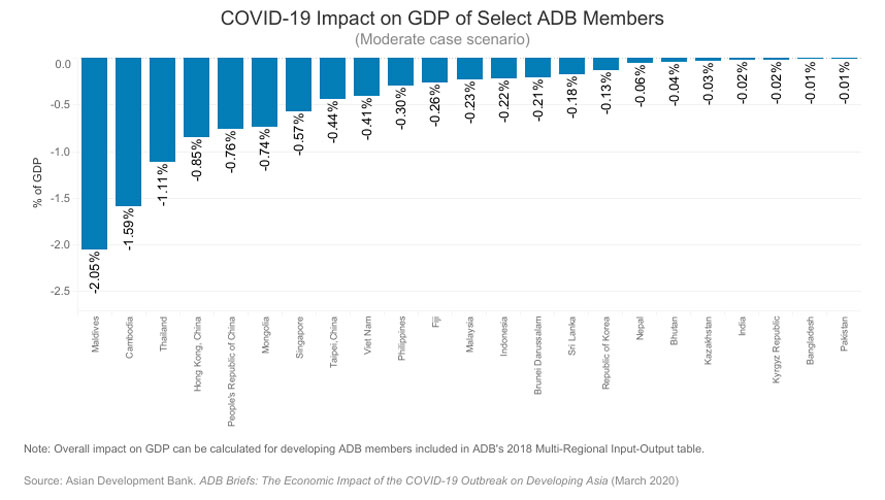Observers consider impact on other service sectors and other industrial sectors
For the latest Cambodian Business news, visit Khmer Times Business
For all the furore surrounding the recent decision to grant garment and footwear workers a minor rise in minimum wages, most experts involved agree that the 4.4 percent increase poses minimal threat to the competitiveness of Cambodia’s manufacturing industries.
Just one week before Pchum Ben festivities kicked off in earnest, the government announced shortly after midday on Sept 20, 2019, that the new minimum wage – which will come into effect for garment factory workers in January 2020 – would rise to $190 per month.
Once again, the argument of diminished appeal to manufacturers was trotted out to ensure that some 800,000 workers employed in the production of garments, textiles and footwear in Cambodia were denied their requested wage.
After unions requested the new minimum wage be set at $195 per month, tense trilateral negotiations between the government and employers came to a close, following employers’ recommendations that the increase go no further than $186.
“The national minimum wage council had agreed on a minimum wage of $187. That was the unanimous vote of the wages in the end and then the government added $3, so it became $190,” explains Sandra D’Amico, vice-president of Cambodian Federation of Employers and Business Associations (CAMFEBA), who represented the interests of employers throughout the negotiations.
When placed against the backdrop of 2018’s increase of 7 percent – up from $170 to $177 plus an extra $5 added by Prime Minister Hun Sen – this year’s more modest raise reflects the tumultuous position the Kingdom is in. Garment workers are teetering on the brink of losing trading privileges with the EU and the US – markets that, together, made up some $10 billion in exports for the industry in 2018.
So, with the EU’s judgement regarding Cambodia’s preferential trading status of “Everything But Arms” (EBA) still pending until February next year, is it really the demands for a higher minimum wage that threatens Cambodia’s industry?
“If you talk about Cambodia’s competitiveness, no,” says D’Amico. “If you talk about the garment industry starting to struggle with higher wages, and investors in manufacturing possibly now not coming to invest so easily, then I would say, yes.”
For employers, D’Amico reasons, the increase isn’t justified by the skills and productivity that Cambodian labour has to offer.
This is a notion that Ken Loo, president of the Garment and Manufacturing Association of Cambodia (GMAC), staunchly agrees with.
“Note that the minimum wage is approximately 40 percent more than per capita GDP [gross domestic product],” says Ken, who believes the wage hike is unjustified and admits that Cambodia’s productivity is something that the industry needs to work on.
“This year’s increase is reasonable considering that the rate of increase is still less than Vietnam’s,” argues Ken. Vietnam has often been cited as one of the potential locations to where disgruntled employers, agitated by rising wages, might move their factories, although Ken predicts it’s too early to know whether any employers actually will relocate.
D’Amico is less concerned with Vietnam, where she states the lowest minimum wage is $190 – a wage Cambodia will move to meet next year. She remains confident that employers won’t be deterred from operating in Cambodia over this year’s minimum wage increase.
“I don’t think people are going to pull out over the minimum wage. I think it’s an inflationary type of increase this year,” she says, but warns that for low value-added manufacturing, Bangladesh and Myanmar are potential rivals and adds that some buyers have threatened to reduce orders from Cambodia unless Bangladeshi prices are met.
Issues beyond minimum wage were also raised, notably pertaining to safe transportation and free or affordable meals at work, but negotiations regarding this will be dealt with by the government at an unspecified point in time.
Between January 1, 2019, and May 30, 2019, there were 766 traffic accidents, according to the National Social Security Fund – among them were 501 victims working in the garment and footwear sector.
“During the 20th discussion for the minimum wage of 2020, we received requests on 13 key points, and four points for employers from union, and some points related to the Ministry of Labour and Vocational Training, so we will check and deal with it,” says Labour Minister, Ith Samheng.
While the government maintains that all parties are satisfied, Ath Thorn of the Cambodian Labour Confederation (CLC) remains deeply disappointed with the outcome.
“It’s really not much of an increase at all due to inflation. It’s a little better, but it won’t change lives,” Ath laments. This limited raise, coupled with deducted holidays and rising inflation has left members of the CLC unhappy, he says, despite workers having provided a 2.2 percent increase in productivity from last year.
“People are only looking at the minimum wage in Bangladesh, in Myanmar, but we can’t just compare numbers – we need government assurance that wages reflect the cost of survival. In Vietnam the cost of living in much lower,” he argues.
“Nobody in the CLC is happy. The workers are all unhappy with the decision, but what can they do? We have no choice under the restrictions. We can do nothing,” he adds.
For D’Amico, there is a pressing need “to develop an education system in parallel with the bringing in of foreign skills to solve the gap – that we really, really need”.
She believes that in order to move into higher value added manufacturing, education and training needs to change faster.
“It’s happening way too slowly. It’s so important that we get industrial engineering courses, merchandising courses and training happening at university level, or, at some level, I just think that the mapping of what is needed from an education sector is not done with enough creative forethought for industries and – to link it to industrial strategies – that it’s just not happening,” says D’Amico, who notes that the short-term solutions have been implemented – such as the GMAC Training Institute – don’t go far enough.
“I think part of the challenge is resources, part of the challenge is planning and just making it happen and, if that is not going to be a priority now, in the next three to five years, then I think Cambodia’s competitiveness overall will be at risk,” D’Amico predicts.
Both D’Amico and Ath agree that the impact of EBA poses a larger threat than rising wages, with Ath citing the looming uncertainty as the reasoning behind such a low raise.
“Workers are already suffering from it because of the reduced growth in minimum wages,” he says. “Whether EBA is lost or not, this year will be tough. We have no idea how many employers will leave if it’s lost, nor do we know which sectors will be hit first in that case.”
“A lot of the big factories that have been very successful in Cambodia normally, at this time of the year, would have at least the first half of next year booked up full of orders, but they’re not booked up because buyers are waiting to understand the impact of EBA,” says D’Amico, who suggests the impact of the minimum wage increase may also affect other sectors in Cambodia.
“You don’t have a differentiation in the minimum wage now,” notes D’Amico, highlighting that non-skilled workers in the garment and footwear industry – cleaners, packers and sorters – also receive the new minimum wage.
“I think the challenge is going to be more the impact on other sectors and what does this increase mean for the impact on other service sectors and other industrial sectors in Cambodia? Do you think you can offer a university student $200 or $250 as a starting salary? I think we underestimate that impact and how the private sector is going to manage that, but we will see how the market reacts.”




